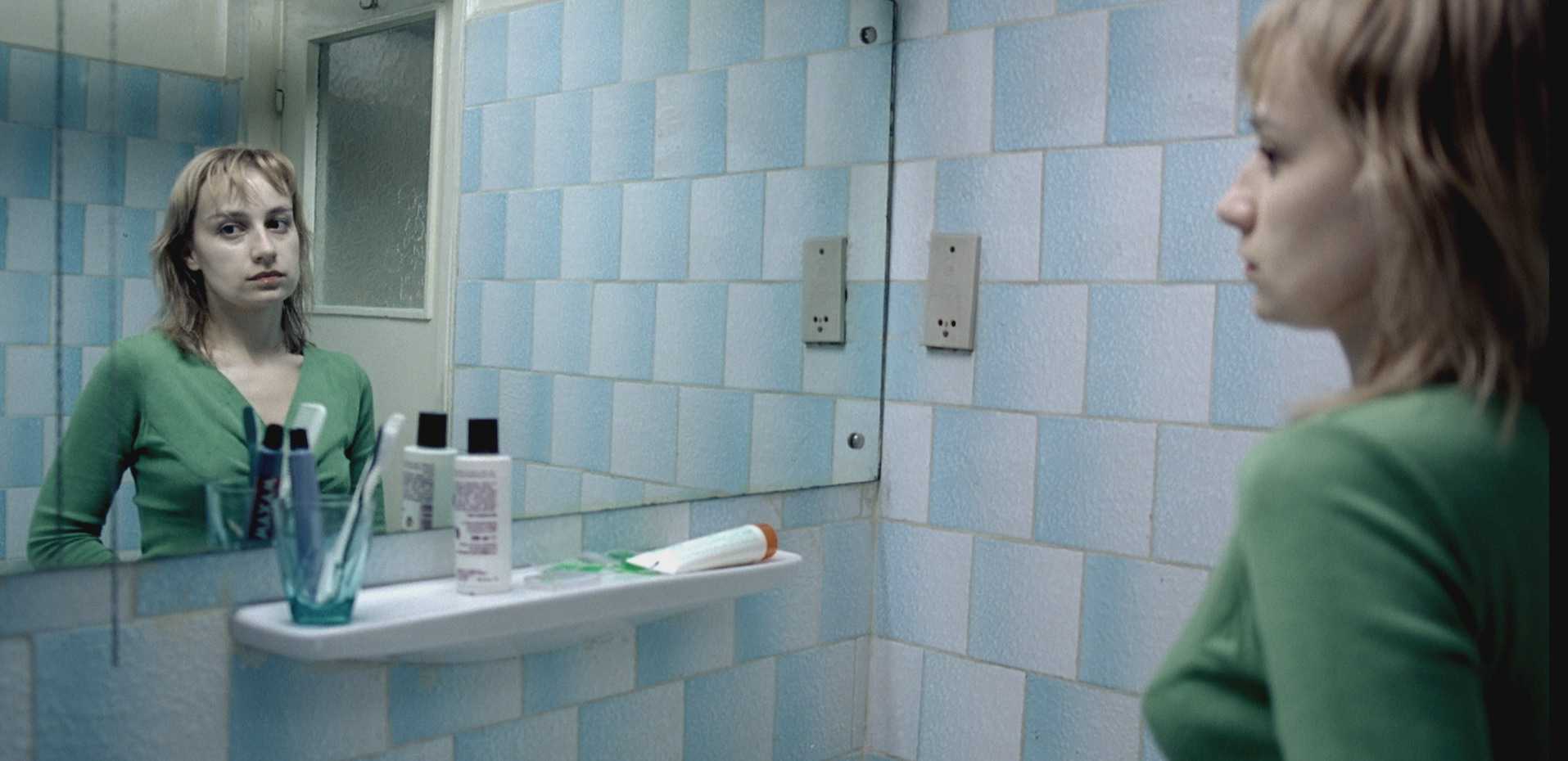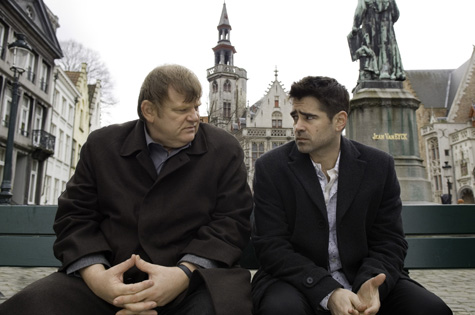“‘We played with great character in one of the great games in international basketball history, I think,’ U.S. coach Mike Krzyzewski said.” Congrats to the US men’s Olympic basketball team, who returned to golden form this morning by closing out Spain 118-107. (Now, Coach D’Antoni, get thee to the Knickerbockers. We have work to do!)
Category: Europe
Wir sind alle Berliners.

|
History has led us to a new crossroad, with new promise and new peril. When you, the German people, tore down that wall — a wall that divided East and West; freedom and tyranny; fear and hope — walls came tumbling down around the world. From Kiev to Cape Town, prison camps were closed, and the doors of democracy were opened. Markets opened too, and the spread of information and technology reduced barriers to opportunity and prosperity. While the 20th century taught us that we share a common destiny, the 21st has revealed a world more intertwined than at any time in human history… Now the world will watch and remember what we do here — what we do with this moment. Will we extend our hand to the people in the forgotten corners of this world who yearn for lives marked by dignity and opportunity; by security and justice? Will we lift the child in Bangladesh from poverty, shelter the refugee in Chad, and banish the scourge of AIDS in our time? Will we stand for the human rights of the dissident in Burma, the blogger in Iran, or the voter in Zimbabwe? Will we give meaning to the words “never again” in Darfur Will we acknowledge that there is no more powerful example than the one each of our nations projects to the world? Will we reject torture and stand for the rule of law? Will we welcome immigrants from different lands, and shun discrimination against those who don’t look like us or worship like we do, and keep the promise of equality and opportunity for all of our people? People of Berlin — people of the world — this is our moment. This is our time.” |
After stops in Kuwait, Afghanistan, Iraq, Jordan, and Israel, Sen. Obama takes his message to the heart of Berlin, before a crowd of over 200,000 at the Brandenburg Gate. [Video | Transcript.] As Der Spiegel‘s chief foreign desk editor put it after the speech: “No. 44 has spoken.”
Well, let’s make sure we all do our part on Election Day first. Still, it’s safe to say the Obama World Tour has been knocked out of the park so far. Between this and Iraq’s backing of the Obama plan earlier in the week, McCain’s chances are, at least to my mind, looking downright dismal these days. And whining about the press, a.k.a. the mythical maverick’s former “base”, isn’t going to right the ship for the GOP. Yep, all in all, things are looking pretty good for November…and beyond.
(By the way, when Sen. Obama isn’t making the case for world peace, he’s also got a pretty sweet jumper.)
Wish You Were Here.

ESA’s Mars Express sends back some impressive postcards from Mars. “Over the last five years its stereo, high resolution camera has taken thousands of images of the surface, revealing the planet’s awe inspiring beauty in unprecedented detail.”
Eyes Without a Face.
“[N]obody knows who the faceless figures, who often appear as motionless couples are, or why they are turning up at high profile events. Theories include the possibilities that they are limelight-seeking pranksters, performance artists or that they are at the centre of a viral marketing campaign for an as-yet unknown product of forthcoming horror film.” I, for one, welcome our new faceless overlords.
They’ve lost control again.
“This is a very unusual theft and I am confident that someone locally will have knowledge about who is responsible or where the memorial stone is at present.” By way of Ted, someone has walked away in silence with Ian Curtis’ tombstone. (Here’s the scene of the crime.)
Dream in Black and White.

“After examining the film the three experts are certain: The find from Buenos Aires is a real treasure, a worldwide sensation. Metropolis, the most important silent film in German history, can from this day on be considered to have been rediscovered.” Ave Maria! The original Ghost in the Machine has been found! Before this and this and this and this and this and just about anything else you can think of in the sci-fi department, there was Fritz Lang’s Metropolis, and it’s been rediscovered in an Argentine film vault. (Tour Lang’s city here.)
This unearthed original print is rumored to be 210 minutes long, a full hour and a half longer than any version seen since 1927. “Among the footage that has now been discovered…there are several scenes which are essential in order to understand the film: The role played by the actor Fritz Rasp in the film for instance, can finally be understood. Other scenes, such as for instance the saving of the children from the worker’s underworld, are considerably more dramatic. In brief: ‘Metropolis, Fritz Lang’s most famous film, can be seen through new eyes.’“
Rebecca Scarlett Barcelona.
No longer fighting over Christian Bale, Rebecca Hall and Scarlett Johansson get caught up in complications with Javier Bardem and Penelope Cruz in the trailer for Woody Allen’s Vicky Cristina Barcelona, also starring Patricia Clarkson. The word from Cannes was that Allen may be back in form after the insubstantial Scoop and the atrocious Cassandra’s Dream, so here’s hoping for the best.
Ex-Pats United.
It’s not just here at home. Sen. Obama takes the Americans Abroad primary 2-1 (65%-32%), winning most of the countries around the world (Ex-pats in Israel and the Philippines opted for Clinton.) Thanks, Kris, and all the other Obama voters out there across the seas. Update: Clinton did well in the DR as well.
Darkness in Bucharest.

The Cannes winner of 2007 (over No Country for Old Men, which I still preferred), Cristian Mungiu’s 4 Months, 3 Weeks, and 2 Days, a fearless look at a very dark day in the life of two Romanian women, is a tremendously harrowing exercise in Hitchcockian suspense, and a grim, unrelenting journey into the moral compromises and bureaucratic decay that characterized life in Nicolae Ceausescu’s Romania. I have some issues with Mungiu’s film, which I’ll get to in a bit, but no one can deny that it’s a powerful and expertly-made movie, one that tortures with silences and devastates with quiet restraint. But it’s also, I have to admit, a film I admired more than truly enjoyed. That’s its intent, of course: I can’t think of any other movie I’ve seen lately that had me squirming with as much psychic discomfort. (Remember the visceral suspense of the hotel scene in No Country, when Chigurh passes by Llewelyn’s door and removes the hallway lightbulb? Now imagine having that feeling for over an hour.) Still, while I can’t deny 4 Month‘s emotional hold, I think I ultimately prefer The Lives of Others — a film that offsets its tragic tale with moments of grace, humor, and even redemption — when it comes to recent fables of the Eastern Bloc.
4 Months establishes its naturalistic, real-time feel from its opening moments, as we watch a young Romanian student named Gabita (Laura Vasiliu) fiddle with her belongings and seemingly make preparations for an important trip. As she frets, her roommate, Otilia (Anamaria Marinca, Oscar-worthy) wanders down the hall of their dormitory, navigating the nooks and crannies of a casual black market economy with a bored, practiced ease. (She picks up cigarettes for bribing officials, looks over the recent array of smuggled-in beauty products, and procures some Tic Tacs from a friendly dealer-neighbor.) But Otilia too gives the sense that something major is afoot, something we gradually glean the outlines of as the day goes along. Leaving Gabita behind, Otilia ventures out to lock down a nearby hotel room (something Gabita was previously meant to do, but apparently didn’t), borrows some money from her boyfriend (Alexandru Potoceanu), and eventually goes — on behalf of Gabita — to meet a Mr. Bebe (Vlad Ivanov, memorably sinister), a man we eventually come to learn is a back-alley abortionist.
Then, things get worse. For not only is abortion a criminal offense under the Ceausescu regime, one that carries a penalty of prison or even death, but the helpless Gabita (the pregnant one) turns out to be flaky and careless to the extreme, and basically an abuser of Otilia’s competence and compassion. Worst of all, the seemingly innocuous Mr. Bebe — despite dripping with doctorly condescension toward the “young ladies” — turns out to be the type of monster that can readily flourish in the interstices of totalitarianism, reveling in the power he manages to hold over the desperate Gabita and Otilia. And, even beyond the ruthless Bebe — who, trust me, is more than loathsome enough — there awaits the very real risk of medical complications, and the danger of discovery by the authorities…
Sustained by long, masterful, and unbroken shots, 4 Months manages to ratchet up the tension well beyond comfortable levels, making even scenes of a casual dinner party at Otilia’s boyfriend’s house palpable with dread. Like the two women at the center of the story — and, like many people living through totalitarianism, I’d suspect — we’re constantly on pins and needles, waiting for the other shoe to drop. (But don’t get me wrong — some really horrifying shoes drop in this film.) As a remorseless and nerve-wracking Eastern bloc thriller, 4 Months has few parallels I can think of. So why do I harbor reservations about the film? Well, four years, 0 months, and 3 days ago, I wrote of the considerably overpraised 21 Grams that it “just ambles around in its terminally depressed jag for so long that it loses any sense of perspective, and instead becomes just a vehicle for indulging the arthouse fallacy that misery is a substitute for character.” Now, 4 Months is a much, much better film than 21 Grams, but — however tense and suffused with menace — the same problem persists.
Coming out of 4 Months, I was reminded of an interview I read with David Simon about the importance of humor in The Wire, which however bleak is also by all accounts a gut-bustingly funny show. (I know, I won’t shut up about The Wire, but bear with me here.) This article makes the same point: “Though people don’t talk much about the humor in ‘The Wire,’ it’s there. You drop somebody into an alien environment — a closed society like the homicide cops or the drug culture–and the key to working your way into that culture is to understand the jokes, which David does. It’s crucial, because, if it weren’t there, the work would be too depressing. It’s crushing subject matter, but not necessarily to the cops–they’re making jokes while they’re looking at dead bodies–and not to the people shooting dope, even. They’re not necessarily walking around saying, ‘Woe is me.’ There’s a grim humor that springs out of that life.” Picking up along the same lines, Jacob Weisberg wrote: “While The Wire feels startlingly lifelike, it is not in fact a naturalistic depiction of ghetto life. That kind of realism better describes an earlier miniseries of Simon’s, The Corner…The Corner seems to have been a crucial life study for The Wire, a program that attains the dimensions of tragedy without being depressing. The Wire does this by painting with brighter colors on a wider canvas and by leavening its pain with humor…What ultimately makes The Wire uplifting amid the heartbreak it conveys is its embodiment of a spirit that Barack Obama calls ‘the audacity of hope.’” (You see how I snuck in an Obama reference with a Wire reference? See, I’m always on message.)
Seriously, though, it’s that critique which gets to the heart of my hesitation about fully embracing 4 Months. I don’t fault its unflinching refusal to sugar-coat what amounts to a horrible tale in a sad time and place, and it probably speaks worse of me than of Mungiu’s film to even hold such a thing against it. Many stories — maybe even most of them — don’t have happy endings or a laugh track. And, after all, we watch Otilia and Gabita persevere through an extraordinary amount of suffering, so why should they have to crack a joke just to let us off the hook, and make us feel better about their obvious misery? Still, if you can look past the razor-sharp tension that drives 4 Months, it is a relentlessly downbeat — and even one-note — affair. 4 Months is an impressive and powerful movie in any event, but I think I’d hold the film in higher esteem if it — like The Lives of Others — occasionally broke the gloom and allowed its long-suffering characters an uncertain smile, even while staring into the abyss.

Purgatorio nel Belgio.

An ancient port town in the northwest corner of Belgium, Bruges, we are told early on in the film, is the “best-preserved medieval (pronounced “meddy-evil” by our Hibernian heroes) city in Europe.” It’s also the hideout for two Irish hitmen laying low(-country) after a botched job back in London. Ken (Gleeson), the older and more experienced of the duo, is enthused about the chance to sightsee, even if he senses grim portent in the fact they’re hiding out so far away. On the other hand, his partner Ray (Colin Farrell, a good actor but miscast — the part needs someone younger and dumber. Ewan Bremner, maybe?) is aghast by the place, and completely bored senseless from the moment they arrive…until he makes the company of a beautiful local drug dealer, Chloe (Clemence Poesy, best known as Fleur Delacour. Yep, it’s Fleur and Mad-Eye and…well, you’ll see.)
But even Chloe’s considerable charms — and a few drug-fueled binges with a visiting dwarf actor and his coterie of hookers — can’t take Ray’s mind off recent events. You see, the last job (offing Ciaran Hinds) took a dismal turn, innocent blood was spilled, and now Ray feels trapped in the endless purgatory of unabsolved sin. (Having recently sat through Cassandra’s Dream, where he had exactly the same problem, my advice is get over it already. This is another reason why Farrell seems miscast. He’s played too many memorably world-weary strongmen — The New World, Miami Vice, even Daredevil — to seem the aggrieved innocent here.) At any rate, Ray’s mortal screw-up doesn’t sit well with the boss of Ray and Ken’s outfit either — that would be Harry (Ralph Fiennes, playing an amalgamation of Lord Voldemort and Ben Kingsley’s character in Sexy Beast.) And eventually Harry decides to come to Bruges himself to make a reckoning. Let’s just say he’s not coming for the chocolates…
Fiennes’ wildly over-the-top Cockney crime lord is one of the funnier treats in In Bruges, and it’s almost worth the ticket just to watch him delight in being so gleefully unrestrained. (Other than He-Who-Must-Not-Be-Named, of course, and occasional roles like Spider and Red Dragon, Fiennes has — since his breakthrough in Schindler’s List — mostly got stuck in clipped-and-distant, dignified understatement mode, a la The Constant Gardener or Maid in Manhattan.) Matching him toe-to-toe is Gleeson as the voice of conscience In Bruges — I still have yet to see him give a bad performance, and even though his final scenes are rather goofy and implausible here, Gleeson sells it. He’s the heart and soul of the film.
But, even with the quality of acting on display here, there’s a quite a bit of filler in-between the better moments. McDonagh’s jokes are, frankly, hit-or-miss. Even notwithstanding some of the more obvious targets (Americans are fat and self-centered, Belgium is a “sh**hole”), McDonagh’s ear is curiously tone-deaf at times, and his attempts to be edgy and profane by pushing the un-PC envelope often sound dated and embarrassing (Note, for example, the aforementioned racist midget’s screed, Farrell’s strange seesaw analogy, or Fiennes’ AK-47 rant about South Central drive-bys. Ten points from Slytherin.) I wasn’t inherently offended by the attempts, really, but if you’re going to head down that road, at least be funny or clever. Too often, McDonagh seems to expect the shock level to do all the heavy lifting. (Another case in point, the restaurant beatdown.)
In any case, In Bruges has its moments, but I can’t advocate dropping everything to rush out to see it. If you’re the type of person who enjoys decently-made Tarantino-knockoffs, or actors playing against type a la Sexy Beast, add it to the Netflix queue. Otherwise, I’d hold off. I’m sure somebody will make another film about lovely, historic Bruges, a few more centuries hence.
